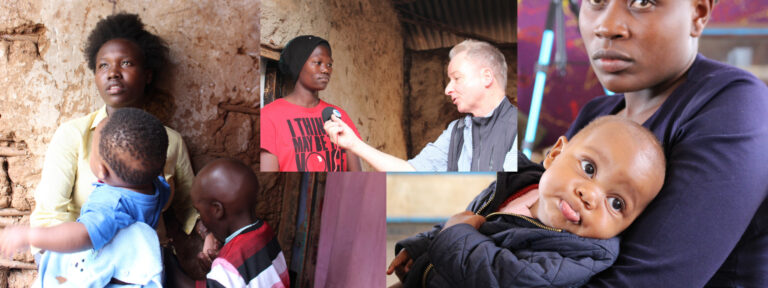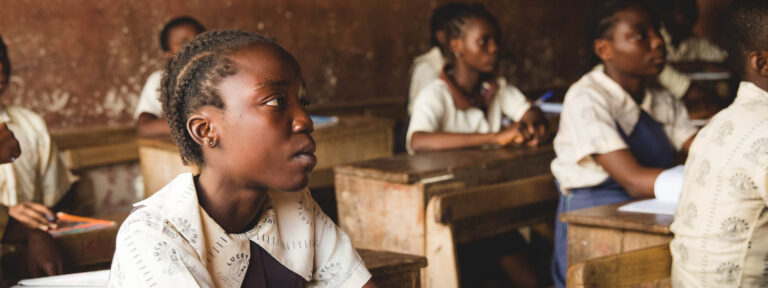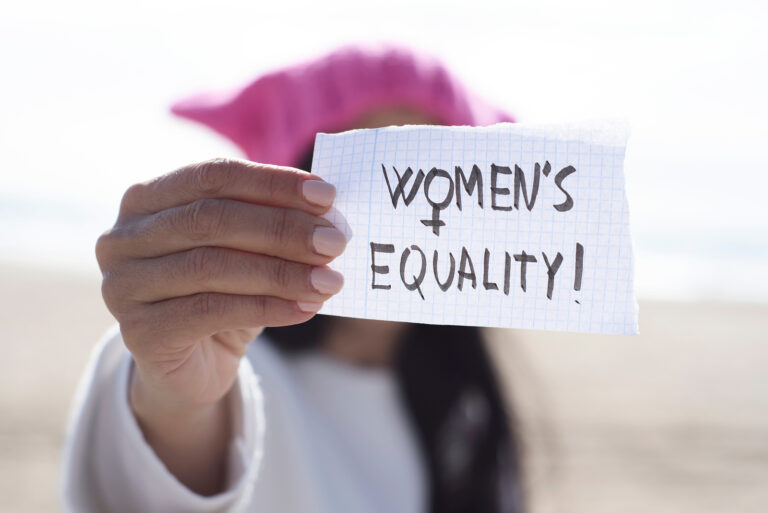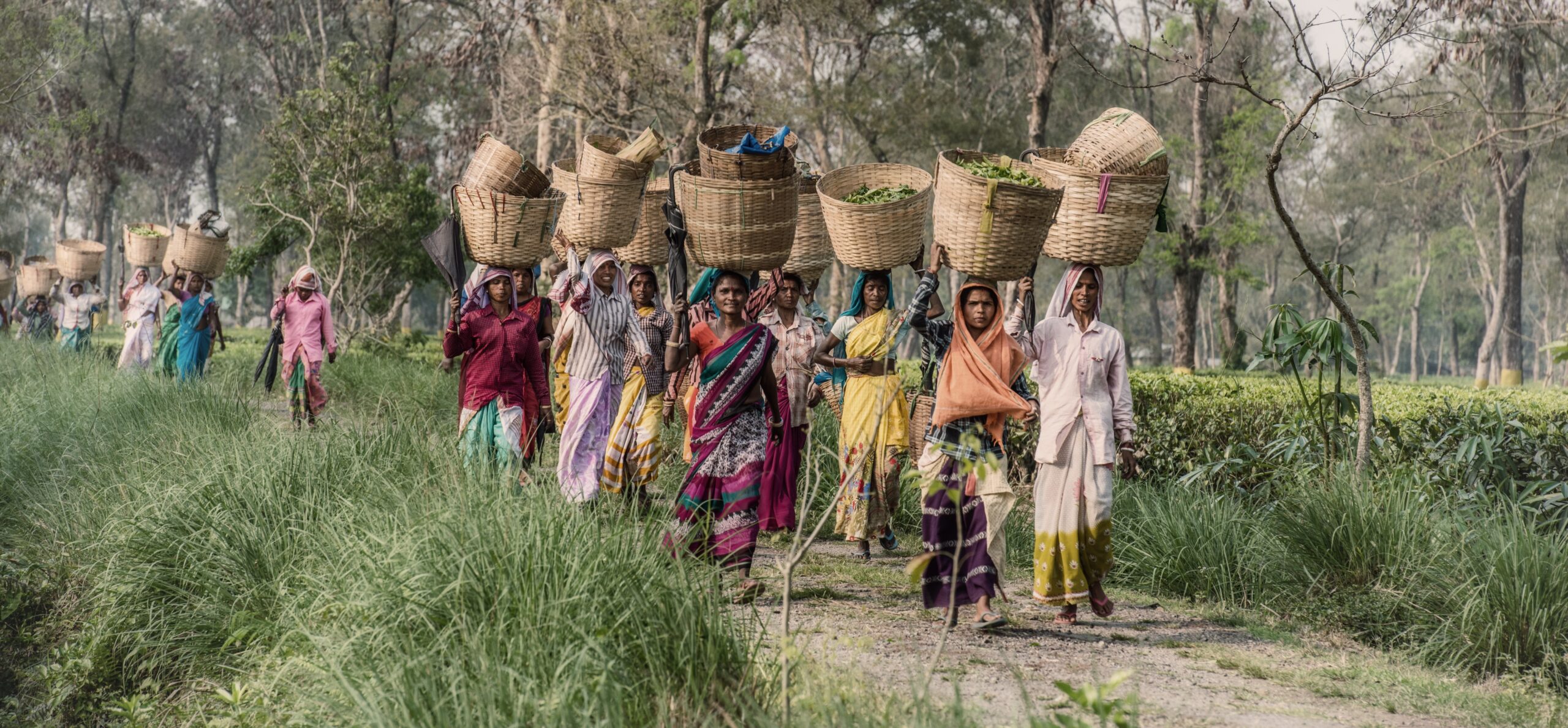
How much would it cost to end the worst gender inequalities?
A new UN report summarises the Nairobi Summit on ICPD25, a key international conference held in November 2019 which aimed to boost global progress on women’s rights and sexual and reproductive health. One key outcome of the meeting was its revelation that ending maternal deaths, gender-based violence and unmet family planning needs is affordable and within reach, but desperately needs more funding.

Unfinished business
Twenty-five years ago, at the landmark 1994 International Conference on Population and Development (ICPD) in Cairo, world leaders committed to achieving universal access to sexual and reproductive health for women and girls. Unfortunately, progress has stagnated over the years, and the proportion of women using modern contraception methods has increased by only 6% to 58% today. Still more than 800 women die every day from pregnancy-related causes, almost half of all pregnancies are unintended, and more than 230 million women in developing countries who wish to avoid pregnancy don’t have safe contraceptives.
More than 8,000 people from 163 UN Member States, including two Population Matters delegates, participated in the event co-convened by UNFPA and the Governments of Kenya and Denmark. The Summit was particularly significant as it was the first major international meeting heralding the United Nations Decade of Action to deliver on the Sustainable Development Goals (SDGs).
Despite its title’s reference to population and development, the Summit predictably but disappointingly didn’t address the overarching population context. Discussions of the benefits of reducing population growth as a result of empowerment and family planning were almost entirely absent, even though the greatest beneficiaries would often be the vulnerable communities it focussed on.
Despite this omission, the Summit represented a very positive affirmation on a global stage that empowering women and girls is key to achieving a healthy planet and a good quality of life for all:
“Strengthening our societies, growing our economies and combating climate change all depend on women and girls taking control over their bodies, their choices and their futures.” – Dr Natalia Kanem, UNFPA Executive Director
The three zeros
The meeting had three key objectives: to obtain political reaffirmation of the ICPD Programme of Action within the context of the SDGs (due to be met by 2030), to build political and financial momentum to fulfil Cairo’s unfulfilled promises, and to reinvigorate and expand the community of people necessary to push forward the ICPD agenda. It remains to be seen how effective the Nairobi Summit was at meeting these objectives. The 12 global commitments resulting from the event include three priority areas, nicknamed the “three zeros”: zero gender-based violence and harmful practices, zero preventable maternal mortality, and zero unmet need for modern family planning by 2030. The total estimated cost of achieving these is USD $264 billion – less than a sixth of annual global military spending – yet the funding gap between what is needed and what has been promised remains huge at $222 billion.
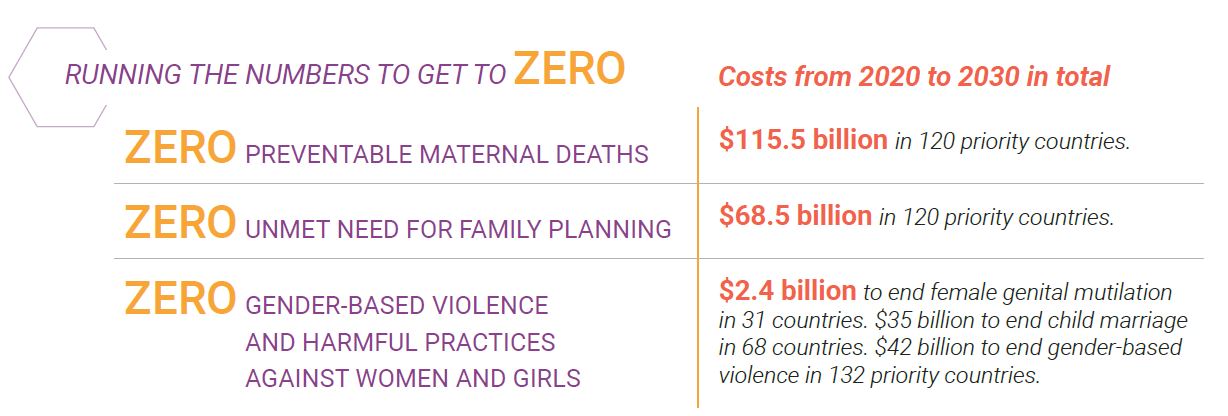
Governments, the private sector and civil society must urgently mobilise to prioritise the advancement of the rights of women and girls. Without strong action over the next decade, the human and environmental cost will be far greater.

